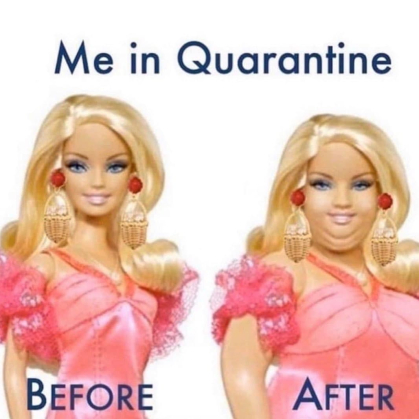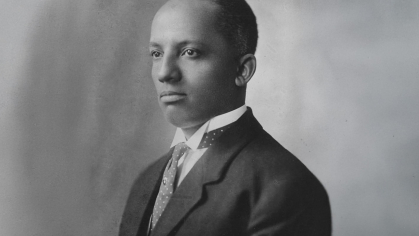Obsessing Over #Quarantine15
Rutgers-Camden researcher warns that memes are sending the wrong message to children about body image

Social media feeds are filled with memes, GIFs, trending hashtags and posts that make it appear people everywhere are growing obsessed with the prospect of gaining weight in quarantine.
The combination of being cooped up at home an arm’s length from the refrigerator and our sudden shift in daily habits – concerning everything from access to groceries to the ability to go to work or the gym – has left people struggling to regain control of their lives, says Charlotte Markey, a professor of psychology at Rutgers University-Camden.
“Controlling what we eat can make us feel like we are generally more in control of our lives,” says Markey, a health psychologist with a particular interest in eating-related behaviors and body image. “However, it’s an illusion; our bodies have nutritional needs that can’t be controlled or ignored.”
Much attention online has focused on tips to stay in shape or to limit urges, notes Markey, but there is also an unhealthy, self-conscious focus on body appearance that can border on fat-shaming.
“The message coming through is that how you look is more important than your health,” says Markey. “It’s an unfortunate message, especially at a time when hundreds of thousands of people are dying of illness.”
Worse yet, says Markey, the message hits close to home for children, who are quarantining alongside us.
She explains that, as discussed in her new book The Body Image Book for Girls: Love Yourself and Grow Up Fearless, people are socialized from a young age to value their appearance as central to their worth. Kids, in turn, may experience guilt for turning to food for comfort and out of boredom – an unhealthy mindset on a normal day, let alone one in quarantine.

“We don’t exactly have a ton of options right now,” says Markey. “Guilt is not a helpful emotion when it comes to food. People rarely maintain healthy habits due to guilt; positive emotions are more motivating.”
While sharing a little food for thought from her book, which is set to release July 2, Markey says kids should know that eating well is a form of self-care; to support their mental and physical health, and they should eat mostly healthy foods. However, she adds, these are extraordinary circumstances.
“Indulging in savory snacks or sweets is ok,” she says. “Totally restricting ourselves from yummy/favored foods when we are already stressed is likely to backfire. Moderation is key.”
As for parents, says Markey, they should be careful not to talk about food much – if at all. Understandably, she notes, some concerns about locating affordable groceries are part of family conversations now, but they shouldn’t tie to discussions about food and weight. Better yet, parents should help their kids embrace food by making meal preparation an engaging, group activity.
“It can be fun to cook meals or bake as a family,” says Markey, who adds that getting out of the house and exercising – walking, running, biking or enjoying a host of other physical activities – is both recommended and encouraged.
The Rutgers-Camden researcher is also quick to point out that many people are exposed to memes and trending hashtags such as #quarantine15 because of the ubiquitous nature of social media. The added exposure via these platforms amplifies whatever is going on socially and culturally, and may make things seem normative that really are not. So it goes, she says, with the fears of gaining weight, which are small potatoes compared to other more pressing issues in people’s lives.
“I’m sure many people are more concerned about how their lives have changed these past couple of months,” says Markey. “Weight concerns are real and problematic even during ‘normal times,’ but I’m sure that most people have larger concerns right now. Social media may lead us to believe otherwise.”
Ultimately, says Markey, it is important for people to take good physical and psychological care of themselves. It’s a point that she took great care and effort to share with a vulnerable population in The Body Image Book for Girls. The focus of the book, she says, is to teach girls that they are so much more than how they look.
“We want girls to grow up empowered,” says Markey, “to be helping to create vaccines for the next pandemic, not staying home afraid of gaining weight during it.”


